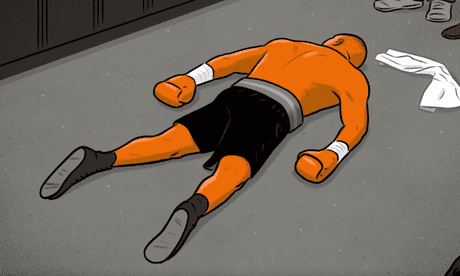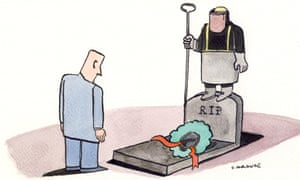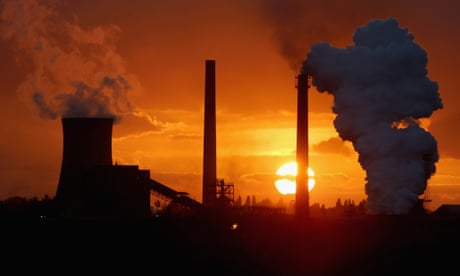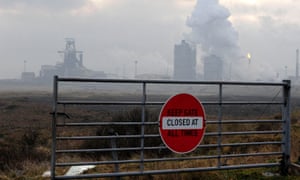'People will forgive you for being wrong, but they will never forgive you for being right - especially if events prove you right while proving them wrong.' Thomas Sowell
Search This Blog
Showing posts with label loser. Show all posts
Showing posts with label loser. Show all posts
Sunday, 20 February 2022
Friday, 1 January 2021
Thursday, 4 April 2019
The life of a loser: what fuels our fascination with the defeated?
They say that you find the best stories in the loser’s dressing room but discovering what defeat does to a champion is not easy topic to tackle writes Andy Bull in The Guardian
There are all different sorts of pauses, and in this business the worst is the one that starts every loser’s press conference, which sometimes drags on so long you worry it’ll never end. A winner’s press conference will fly by, but the ones held by the other guy feel sort of awkward. They usually start with some inoffensive and open-ended bromide, “how are you feeling?” or “you must be disappointed?”, a painkilling platitude before we start to probe a little deeper in the wound. Or everyone will latch on to some ready explanation for what went wrong, the referee’s decision, or someone else’s poor sportsmanship, grateful for an opening that avoids the blunt confrontation of someone’s public failure.
They say that you find the best stories in the loser’s dressing room. No one is sure which grand old man of US journalism came up with that. Maybe it was Bill Heinz, maybe it was Jimmy Breslin, maybe it was Gay Talese. Sixty years later, Talese’s profile of heavyweight champion Floyd Patterson is still one of the most excruciatingly honest accounts of what defeat does to a champion athlete.

Winners are boring!
Because it’s not an easy topic to get at. “I’ve wanted so much to talk to another fighter about all this,” Patterson told Talese, “but who can you talk to? Most fighters don’t talk much anyway. And I can’t even look another fighter in the eye at a weigh-in.”
Talese opened Patterson up like a sardine tin. Patterson told him how he used to keep a fake beard, moustache, spare hat and glasses stashed in his kit bag, and how, when he lost to Sonny Liston in a first-round knockout, he put the disguise on right after the fight and wore it all the way from Chicago to New York, where he went straight to the airport. “I didn’t care what plane I boarded,” he said. “I just looked up and saw this sign at the terminal reading ‘Madrid’, and so I got on that flight after buying a ticket.”

Yutaka Take riding Haru Urara in Kochi, Japan. Photograph: Sports Nippon/Getty Images
For the next five days, Patterson pretended he was an old man with a limp. “I began to actually think I was somebody else,” he said. “And it is nice, every once in a while, being somebody else.”
Patterson was an Olympic champion at 17, won the heavyweight title once at 21, then again when he was 25, and altogether, from his first victory against Eddie Godbold at the St Nicholas Rink, and his last defeat against Muhammad Ali at Madison Square Garden, he fought 64 times, won 55, lost 8, drew 1.
And despite it all, he told Talese, he couldn’t ever shake the feeling that he was some sort of a coward. “You can be a fighter – and a winning fighter – and still be a coward,” Patterson said. That’s why he kept that disguise ready. “It’s easy to do anything in victory. It’s in defeat that a man reveals himself. In defeat I can’t face people. I haven’t the strength to say to people: ‘I did my best, I’m sorry.’”
Esquire called the piece The Loser, which was pretty damn provocative. Back at the beginning of this decade the British tennis player Robert Dee got headlines like that when he lost 54 consecutive matches in ITF/ATP events. The papers called him the worst tennis player in the world, and Dee got so annoyed that he spent the next year making everybody take back what they’d said about him, on the ground that he’d actually won a few matches in a domestic event in Spain.
Even now, Dee’s website reads like one long list of the retractions his lawyers extracted. He ended up taking the Daily Telegraph to the high court for libelbecause they wouldn’t back down. He lost. Fifty-five years later, Netflix has borrowed Talese’s title for its new documentary series, Losers, directed by Mickey Duzyj. There are some great stories, well told, among the eight he picked, such as the reluctant heavyweight Michael Bentt, who lost his world title in his very first defence, Surya Bonaly, the figure-skater who finished in second place at three successive world championships, and, inevitably, Jean van de Velde, who blew the Open on the 72nd hole.
It must have made an interesting pitch. “I’m making a show about losers and I’d like you to be in it.” Duzyj says he had “conversations” with most of the subjects before the launch, about why he’d picked such a pitiless title for the show. “Everybody gets it, mostly because of the tone with which we explored their stories.”

Floyd Patterson, the sleeping giant of boxing
And there’s the catch. Because, good as the show is, the stories all have happy endings. Duzyj calls them “noble failures”. He got interested in the topic when he made a short documentary a couple of years back about a Japanese racehorse called Haru Urara, who lost 113 races in a row. Haru Urara became such a popular underdog that people bet more than $1m on his 100th race, which saved his home track from going bankrupt. “Given the ruthlessness of American culture and the surprising wisdom that came from the Japanese story,” Duzyj says: “I thought it’d be interesting to explore a series of international ‘noble failures’ and see what we all could learn from them.”
It feels like Duzyj flinched, that he felt he had to spin a little sugar in to sweeten the mix. But then when you’re talking to losers, maybe that’s the way it needs to be – and maybe, too, it’s the way we want to think it is. Like Patterson said: “I was the fighter who got knocked down the most, but I also got up the most.”
There are all different sorts of pauses, and in this business the worst is the one that starts every loser’s press conference, which sometimes drags on so long you worry it’ll never end. A winner’s press conference will fly by, but the ones held by the other guy feel sort of awkward. They usually start with some inoffensive and open-ended bromide, “how are you feeling?” or “you must be disappointed?”, a painkilling platitude before we start to probe a little deeper in the wound. Or everyone will latch on to some ready explanation for what went wrong, the referee’s decision, or someone else’s poor sportsmanship, grateful for an opening that avoids the blunt confrontation of someone’s public failure.
They say that you find the best stories in the loser’s dressing room. No one is sure which grand old man of US journalism came up with that. Maybe it was Bill Heinz, maybe it was Jimmy Breslin, maybe it was Gay Talese. Sixty years later, Talese’s profile of heavyweight champion Floyd Patterson is still one of the most excruciatingly honest accounts of what defeat does to a champion athlete.

Winners are boring!
Because it’s not an easy topic to get at. “I’ve wanted so much to talk to another fighter about all this,” Patterson told Talese, “but who can you talk to? Most fighters don’t talk much anyway. And I can’t even look another fighter in the eye at a weigh-in.”
Talese opened Patterson up like a sardine tin. Patterson told him how he used to keep a fake beard, moustache, spare hat and glasses stashed in his kit bag, and how, when he lost to Sonny Liston in a first-round knockout, he put the disguise on right after the fight and wore it all the way from Chicago to New York, where he went straight to the airport. “I didn’t care what plane I boarded,” he said. “I just looked up and saw this sign at the terminal reading ‘Madrid’, and so I got on that flight after buying a ticket.”

Yutaka Take riding Haru Urara in Kochi, Japan. Photograph: Sports Nippon/Getty Images
For the next five days, Patterson pretended he was an old man with a limp. “I began to actually think I was somebody else,” he said. “And it is nice, every once in a while, being somebody else.”
Patterson was an Olympic champion at 17, won the heavyweight title once at 21, then again when he was 25, and altogether, from his first victory against Eddie Godbold at the St Nicholas Rink, and his last defeat against Muhammad Ali at Madison Square Garden, he fought 64 times, won 55, lost 8, drew 1.
And despite it all, he told Talese, he couldn’t ever shake the feeling that he was some sort of a coward. “You can be a fighter – and a winning fighter – and still be a coward,” Patterson said. That’s why he kept that disguise ready. “It’s easy to do anything in victory. It’s in defeat that a man reveals himself. In defeat I can’t face people. I haven’t the strength to say to people: ‘I did my best, I’m sorry.’”
Esquire called the piece The Loser, which was pretty damn provocative. Back at the beginning of this decade the British tennis player Robert Dee got headlines like that when he lost 54 consecutive matches in ITF/ATP events. The papers called him the worst tennis player in the world, and Dee got so annoyed that he spent the next year making everybody take back what they’d said about him, on the ground that he’d actually won a few matches in a domestic event in Spain.
Even now, Dee’s website reads like one long list of the retractions his lawyers extracted. He ended up taking the Daily Telegraph to the high court for libelbecause they wouldn’t back down. He lost. Fifty-five years later, Netflix has borrowed Talese’s title for its new documentary series, Losers, directed by Mickey Duzyj. There are some great stories, well told, among the eight he picked, such as the reluctant heavyweight Michael Bentt, who lost his world title in his very first defence, Surya Bonaly, the figure-skater who finished in second place at three successive world championships, and, inevitably, Jean van de Velde, who blew the Open on the 72nd hole.
It must have made an interesting pitch. “I’m making a show about losers and I’d like you to be in it.” Duzyj says he had “conversations” with most of the subjects before the launch, about why he’d picked such a pitiless title for the show. “Everybody gets it, mostly because of the tone with which we explored their stories.”

Floyd Patterson, the sleeping giant of boxing
And there’s the catch. Because, good as the show is, the stories all have happy endings. Duzyj calls them “noble failures”. He got interested in the topic when he made a short documentary a couple of years back about a Japanese racehorse called Haru Urara, who lost 113 races in a row. Haru Urara became such a popular underdog that people bet more than $1m on his 100th race, which saved his home track from going bankrupt. “Given the ruthlessness of American culture and the surprising wisdom that came from the Japanese story,” Duzyj says: “I thought it’d be interesting to explore a series of international ‘noble failures’ and see what we all could learn from them.”
It feels like Duzyj flinched, that he felt he had to spin a little sugar in to sweeten the mix. But then when you’re talking to losers, maybe that’s the way it needs to be – and maybe, too, it’s the way we want to think it is. Like Patterson said: “I was the fighter who got knocked down the most, but I also got up the most.”
Wednesday, 28 October 2015
Why don’t we save our steelworkers, when we’ve spent billions on bankers?
Aditya Chakrabortty in The Guardian

‘Britain is entering the early stages of yet another industrial catastrophe.’ Illustration by Andrzej Krauze
Every so often a society decides which of its citizens really matter. Which ones get the star treatment and the big cash handouts – and which get shoved to the bottom of the pile and penalised. These are the big, rough choices post-crash Britain is making right now.
A new hierarchy is being set in place by David Cameron in budget after austerity budget. Wealthy pensioners: winners. Young would-be homeowners: losers. Millionaires see their taxes cut to 45%, while the working poor pay a marginal tax rate of 80%. Big business gets to write its own tax code; benefit claimants face harsh sanctions.
When the contours of this new social order are easy to spot, they can cause public uproar – as with the cuts to tax credits. Elsewhere, they’re harder to pick out, though still central. It is into this category that the crisis in the British steel industry falls.
Every so often a society decides which of its citizens really matter. Which ones get the star treatment and the big cash handouts – and which get shoved to the bottom of the pile and penalised. These are the big, rough choices post-crash Britain is making right now.
A new hierarchy is being set in place by David Cameron in budget after austerity budget. Wealthy pensioners: winners. Young would-be homeowners: losers. Millionaires see their taxes cut to 45%, while the working poor pay a marginal tax rate of 80%. Big business gets to write its own tax code; benefit claimants face harsh sanctions.
When the contours of this new social order are easy to spot, they can cause public uproar – as with the cuts to tax credits. Elsewhere, they’re harder to pick out, though still central. It is into this category that the crisis in the British steel industry falls.

Tata Steel confirms 1,200 job losses as industry crisis deepens
It would be easy to tune out the past few weeks’ headlines about plant closures and job losses as just another story of business disaster. But what’s happening to our steelworkers, and what we do to protect them, goes to the heart of the debate about which people – and which places – count in Britain’s political economy.
If Westminster lets the UK’s steel industry die, it’s in effect declaring that certain regions and the people who live and work in them are surplus to requirements. That it really doesn’t matter if Britain makes things. That the phrase “skilled working-class jobs” is now little more than an oxymoron. That’s the criteria against which to judge MPs, as they continue to take evidence today on the crisis and then debate options.
What does this crisis look like? Imagine coming to work on a September morning – only to find that you and one in six other employees in your entire industry face redundancy before Christmas. That’s the prospect facing British steelworkers. Motherwell, Middlesbrough, Scunthorpe: some of the most kicked-about places in de-industrialised Britain now face more punishment.
Mothball the SSI plant in Redcar and it’s not just 2,200 workers that you send to the dole office and whose families you shove on the breadline. An entire local economy goes on life support: the suppliers of parts, the outside engineers who used to do the servicing, the port workers and hauliers, the cafes and shops. Within days of SSI’s closure, one of Teesside’s biggest employment agencies went into liquidation.

‘If Westminster lets the UK’s steel industry die, it’s effectively declaring that certain regions and the people who live and work in them are surplus to requirements.’ Photograph: Nigel Roddis/Reuters
Steel is a fundamental part of manufacturing, so that the closure of a handful of steelworks in Scotland and the north endangers businesses in Derby and Walsall. At the West Midlands Economic Forum, the chief economist Paul Forrest calculates that about 260,000 jobs in the Midlands rely on steel for everything from basic metals to car assembly and aerospace engineering. He believes that the closures at Tata, SSI and Caparo leave 52,000 local manufacturing workers at direct risk of losing their jobs within the next five years. That’s just after the past few weeks – the UK Steel director Gareth Stace thinks that more plants face closure “within months”.
Join up these predictions, and Britain is entering the early stages of yet another industrial catastrophe. It could finally sink a sector, steel, that actually helps reduce the country’s gaping trade deficit. With that will go another pocket of well-paid blue-collar jobs. Chuck in employer contributions to pensions and national insurance, and the total remuneration per SSI staffer is £40,000 a year. Just try getting such pay in a call centre or distribution warehouse, even as a manager.
Imagine what would happen if manufacturing were centred around the capital, and its executives had Downing Street on speed dial. Actually, you needn’t imagine – merely remember the meltdown of 2008. Then Gordon Brown was so desperate to save the City that the IMF estimates he propped it up with £1.2 trillion of public money. That’s the equivalent of nearly £20,000 from every man, woman and child in the country doled out to bankers in direct cash, loans and taxpayer guarantees.
That’s what the state can do when it decides a sector matters. In 2011 David Cameron stormed out of a Brussels summit rather than agree to more regulation on the City. When it comes to steel, his ministers shrug at the difficulties posed by the EU’s state-aid rules. Michael Heseltine even declares this a “good time” for Teesside’s workers to lose their jobs in Britain’s “exciting” labour market. Let them eat benefits!
True, the problems in the steel industry aren’t confined to these shores. They’re driven by a world economy coming off the boil and China dumping its excess steel output on the global market. Yet other European governments are being far more aggressive in confronting them. Italy’s prime minister, Matteo Renzi, bailed out a huge steelworks last December. Germany’s Angela Merkel ensures that steel producers are cushioned from higher energy prices.
Just how lame, by comparison, is Cameron? Here’s an example: the European commission runs a publicly funded globalisation adjustment fund that can grant over £100m a year for precisely the sort of situation British steelworkers now face. The Germans, the French, the Dutch: they’ve all drawn down many millions apiece. The British? European commission officials told me this week that they had never so much as seen an application from the UK. Here’s a giant pot of money – into which Whitehall can’t even be bothered to dip its fingers.
Once our steel capacity is gone, it’s gone – and with it goes a big chunk of what’s left of our manufacturing base. Whole swaths of the country that have only just got off their backs after Thatcher’s de-industrial revolution will be knocked to the floor all over again.
The choice is stark. Westminster can sit on its hands, pretend it can’t do anything about the supposedly free market in steel (in which the single biggest player is the Chinese Communist party), and let tens of thousands of families go to the wall. Or our political class acts as if its job is actually to protect people from market fluctuations – and keep the steel industry afloat by extended bridging loans and capital investment in return for public stakes.
A return to British Leyland? No: a far cheaper and smaller rescue than RBS and HBOS. Free-market fundamentalists will decry this as a wage subsidy to steelworkers. But the alternative is to wind up paying far more in benefits to thousands of unemployed workers and their families. Besides, the state already shells out billions in hidden wage subsidies, through the tax credits and housing benefit that taxpayers give to employees of poverty-pay firms such as Sports Direct and Amazon.
What’s being proposed here is open, transparent support to employees in normally high-paying and high-skilled jobs. To keep a vital industry from disappearing for good. And to show that it’s not just the City that matters.
Sunday, 21 December 2014
The effects of a fall in the price of oil
It looks very much as though 2015 will be a good year for the world economy, after all – and, if it is, that will be thanks to the fall in the oil price. It won't be good for everyone and we have already seen the pressure it puts on the Russian leadership – though, before you conclude that sometimes there is natural justice in the world, remember that the people who are hurt are not leaders such as Vladimir Putin. Other oil- and gas-exporting countries are damaged, too, and I think we will see further fallout in unpredictable ways. But the net impact is strongly positive, more so than most commentators at present acknowledge. The winners far outnumber the losers.
If that sounds overly optimistic, consider this. We have a lot of experience of sudden increases in the price of oil but very little of sudden falls. Oil has tended to go up in big jumps and come down in small, incremental notches. We know that, when the oil price suddenly doubles, this gives world growth a huge blow. The global recessions of the 1970s, the early 1980s and 2008 were all triggered by an oil-price shock. So if oil gives the economy a blow on the way up, surely it must give a corresponding boost when it is on the way down?
How much of a boost? It would be nice to have a ready-reckoner on the lines that x per cent off the oil price would lead to a y per cent rise in growth. But that isn't possible. First, we don't know what the oil price will do in the months ahead. And, second, the fall in price can come about either from an increase in supply or from a broader trend of deflation around the world. If the former, the lower oil price is undoubtedly positive; but if the driver is general deflation (and in Europe and Japan inflation had plunged before the oil-price fall), the argument is more finely balanced.
There is a spectrum of views on this. Here are a couple, from each end of the scale. The more cautious comes from HSBC, which has just put out a paper emphasising deflationary concerns. It notes that the world is saddled with high levels of debt and that years of very low interest rates and quantitative easing have failed to get credit growth moving. It concludes: "It's increasingly difficult to ignore the echoes from Japan."
At the optimistic end is Berenberg Bank, which reckons that lower oil prices will increase demand in Europe and America by at least 0.5 per cent over the next 18 months. It acknowledges that there are losers and that the damage to Russia may spill over into Germany and Italy. But the conclusion is upbeat: "Cheaper oil, if it lasts, should provide a persistent tailwind to growth for oil consumers over the next few years even beyond the short-term boost to real incomes."
My feeling is that the fall in the oil price comes just in time to sustain and broaden an uneven recovery. Continental Europe and Japan have been the two main laggards in the developed world and both depend heavily on imported energy. If the price drop adds 0.5 per cent to eurozone growth next year, that would be enough to double the performance of 2014. We must be aware that cheaper energy cuts headline inflation and it is quite possible that this will go negative early next year in the eurozone.
But the problems of the eurozone go far beyond simple deflation, for they concern the rigidities imposed on Europe by the single currency and the lack of structural reforms, especially in Italy and France. In any case, underlying inflation will pick up once cheaper oil has worked through the system; meanwhile, the dip will nudge the European Central Bank to have yet another shot at boosting demand.
And for Britain? As a net importer of oil, we are a net beneficiary. This is bad news for the North Sea oil industry and for the Scottish economy, but the UK as a whole is a modest winner. If Europe perks up a bit, we become a bigger winner thanks to higher exports. British consumers are clear winners, as we have seen, and the idea that the economy can have another year of 3 per cent growth, maybe a bit more, seems a decent bet. Next year's uncertainties are political, not economic.
We can, as a country, make a mess of things. We know how to do that. But whereas for most of the past five years we have been butting into a global headwind, now we have a tailwind. And that is a huge change that I don't think we fully appreciate.
Thursday, 30 October 2014
Today, males under 40 are three times more likely to kill themselves than women
Yasmin Alibhai-Brown: We must wake up to the silent suffering afflicting too many young men
We were discussing terrorism at a private seminar two weeks ago when one of the attendees – an academic – wondered aloud whether jihadis had found their own way of expressing grave and growing male despair: “They go off to kill others, while here in the UK an unprecedented number of men under the age of 40 are killing themselves. Do both these come from the same source?” The question stunned us all. It was bold, astute, lateral and exposed the inadequacy of the national discourse on terrorism.
Muhammad Mehdi Hassan, only 19, was killed in Syria this week. Like three other young men who have also died in those killing fields, he was from Portsmouth. Many such Muslims appear to have gone out to help Syrian people caught in the bloodiest of civil wars. Then some got in with Isis, while others took up arms to fight the bad guys, whoever they are. A number British Muslims want to come back home, but can’t because Isis makes them stay on pain of death. And, besides, they know they would be imprisoned upon return.
In most cases, the families are shocked and traumatised. Imagine how Hassan’s mother feels. They sent him to a private school hoping he would make them proud. Now they have to mourn, feel guilt and be accused by those around them. They have no help groups and worse, are seen as pariahs.
Meanwhile a reader, Lucinda (not her real name), emailed me last week. She is alarmed at the way her leftie, liberal friends are now vehemently anti-Muslim and think that such parents are liars or should know what their children are up to. Parents of young white men who commit suicide are similarly disbelieved or blamed. The guilt, the silent accusations, circulate around them: “How could they not have seen the signs? Why didn’t they do something to help him?”
Female suicides have gone down since 1981, while male suicides are up. Today, males under 40 are three times more likely to kill themselves than women in the same age group. Suicide is the biggest cause of death among men under 35. Though most are from the lower socio-economic groups, over the past decade sons of politicians, judges, and other professionals have killed themselves.
Janet Cosgrove, who now volunteers with Survivors of Bereavement by Suicide, still can’t believe her son William stabbed himself to death 11 years ago. They had shared a takeaway, watched TV the night before. His note said: “I just don’t want to be here any more.”
That must be how many of the other men felt when they could not go on – when they didn’t want to wake up to another day. And that, I suggest, could be one factor pushing jihadis, too. Brian Jenkins, a counter-terrorism analyst at the American Rand Corporation’s National Defence Research Institute, believes many of those young, impressionable men could be mentally ill, or are individuals “facing personal crises and having trouble coping”.
We must condemn what they do, but at the same time find out what is going on in their impenetrable minds. A retired, respected expert from the intelligence services told me on Thursday at a YouGov conference in Cambridge that jihadis who wanted to come back should be allowed to do so – and then helped. They are disturbed, restless men who need to be brought back into society.
The problem, however, is way bigger than that. Our nation has neglected the pain of young men for far too long. Why are so many giving up on society and their futures? The feminist instinct is to damn males, not to understand them. That can’t be right. After all, we have sons too who could one day either destroy others or themselves because they find life impossible. Feminism made great strides, but we have not thought about the unintended effects of this movement that I wholly support.
Leaders who run our society, politics and economics must interrogate themselves. Some of the men from privileged families who committed suicide felt like failures and losers as they weren’t top achievers. The less well-off are made to feel as if they don’t matter at all, in this fast and materialistic nation where the winner takes all.
Old assumptions persist. Boys don’t cry. They must man up. And new assumptions are just as bad: you are what you have, and furious ambition makes you a man. In this environment, men can find it harder to talk about feelings or ask for help. Within too many Muslim families, authoritarianism rules and adds further pressures.
I thank the academic who made me think about the connections between Islamists and those who feel they are no use to anyone and therefore must die. Humans are more alike than we ever care to admit. The destruction and self-destruction will only get worse unless we collectively try to save young men from themselves.
Subscribe to:
Comments (Atom)